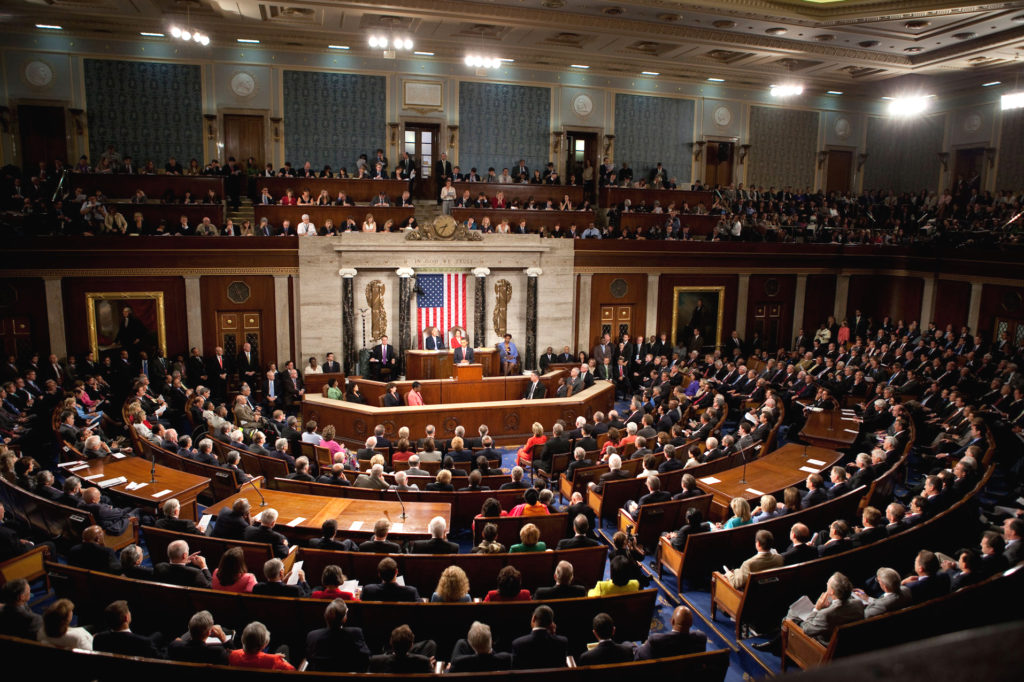This essay is part of our collection on the 2016 election. Read related articles here.
In ordinary times, members of the Electoral College have a boring, honorific task. They’re the ones we’ll actually select when we vote on November 8. There are 538 of them; each state gets electors equal to the number of its representatives plus its two senators. About six weeks after election day, they meet, once, in their respective state capitals to cast their votes for the presidential candidates who won the popular vote in their respective states. They rubber-stamp the results and go home to watch the preordained outcome unfold on TV.
But these are not ordinary times.
National opinion is agonizingly split. Even within each party, voter segments have deep misgivings about their own nominee—especially on the Republican side, where the previous nominee and two of Trump’s leading primary competitors still refuse to endorse him. Polls report voters motivated more by antipathy to the other candidate than enthusiasm for their own. And fluctuations in the polls have remained within a surprisingly tight range.
Start your day with Public Discourse
Sign up and get our daily essays sent straight to your inbox.Hillary may seem to have the momentum, but some polling indicated Trump leading by a few points nationally after the third debate. Even analysts at the Washington Post and NPR have entertained the possibility of an electoral vote tie at 269-269. This would happen if Hillary wins the usual Democratic states—including Pennsylvania, Colorado, and Virginia—but Trump holds North Carolina and wins Ohio, Florida, Nevada, Iowa, and New Hampshire, where polls have shown an on-again, off-again “toss-up” despite recent Trump eruptions that would normally capsize a candidate. In such a case, each candidate would be one vote short of a 270 majority. Moreover, in that case Hillary would probably have won the national popular vote because of lopsided wins in high-population states like California and Illinois. (Evan McMullin’s rising status in Utah polls potentially complicates this scenario slightly, making the Electoral College even more vital. I’ll return to him below.)
If neither major party candidate has an Electoral College majority, the election goes to the House. Per the Twelfth Amendment to the Constitution, the House would then select Donald or Hillary, right?
Not so fast. Remember: at the end of the day on November 8,, any Electoral College tally is only prospective. The electors will not have cast their votes yet. That doesn’t come until December 19. If the prospective electoral vote is tied (admittedly unlikely) or if it is close (extremely likely), the fate of the presidency will lie in the hands of the electors. That’s because the electors’ options under these circumstances are far broader than most people realize.
The Freedom of the Electors
The Constitution does not bind electors to their candidates. It leaves that to the states. Some states legally oblige their electors to vote for the winner of the statewide popular vote; some do not. Of the 538 members of the Electoral College, about 260 are not legally bound in their vote. Due to the cumulative effect of various state decisions over the years, about 100 of those free electors will probably be in the Democratic column. (This assumes, as above, that Hillary wins Pennsylvania, which does not bind its electors.) The remaining 160 or so will probably be in the Republican column.
In other words, more of the potential slippage, and potential drama, would be among Republican electors. After the rancor, embarrassment and damage that Trump has inflicted on the party, has he endeared himself to the kind of party regulars who serve as Republican electors?
Follow my hypothetical for a minute: if November 8 voting indicates a tie in the Electoral College, it would only take one of Hillary’s free electors to jump ship for Trump, or one of Trump’s free electors to jump ship for Hillary, to settle the presidency and prevent the election from going to the House. Neither jump is likely.
Alternatively—and again hypothetically if there’s an exact electoral vote tie—it would take only one of the 160 unbound Republican electors to vote for a third candidate to make that person the third-highest vote-getter as the election moves into the House. That one vote would make that person fully eligible for election by the House. According to the Twelfth Amendment, the House chooses from among the three highest vote-getters in the Electoral College.
For purposes of electing a president, the House votes by states, not by representatives: each state gets one vote, no matter its population. The Republicans hold more (smaller) states, giving them an advantage. It only takes 26 votes (states) in the House to select the new president.
Why should we assume that the Republican majority in the House would automatically elect Trump if the Electoral College had provided them with a respectable and plausible alternative as the third-highest electoral vote-getter?
If you’re following this hypothetical scenario, you will realize by now that there’s a wide range of likelier scenarios where unbound electors could be decisive. It wouldn’t have to be a tie. Set aside the Hillary scenarios: if she wins in the Electoral College, she’ll have no trouble holding on to her free electors, and they would have no interest in sending the choice to the House.
But what if Hillary wins the national totals but Trump claims a thin Electoral College win? He could do this by flipping Pennsylvania, even while losing New Hampshire. Or, as an NPR analysis suggested not too long ago, he could do it by holding the historically Republican states (New Hampshire but not Pennsylvania) while winning one of Maine’s votes, ending up just at the finish line. In the former case, Trump could claim 285 electoral votes, in the latter 270. Tight, but good news for Trump either way.
Or maybe not. By the time the Electoral College meets, Trump may have discredited himself more deeply than he already has, especially if he slips the leash of self-restraint even more readily than usual after Election Day, when his guard is down and his dander is up. Trump’s recent incendiary claims about a “rigged” election foreshadow this kind of behavior.
To pull Trump down from 285 to 269, would sixteen of the approximately 160 unbound Republican electors break with custom (but not law) and vote for some stable, civil, conservative Republican of national stature? Would they, in other words, cast their vote for the kind of person who would have won the nomination if the anti-Trump primary vote had not been split? If sixteen might do it, how about twenty? Fifty? Or just one? That’s all it would take under the Maine scenario.
What about Evan McMullin?
Although it’s unlikely, Evan McMullin might win a plurality of votes in his home state of Utah on November 8. In that case, and again assuming Hillary and Trump split the other states as envisioned, McMullin would automatically put himself in Electoral College contention. Most observers see this as the premise of his candidacy.
McMullin’s fans assume that Utah’s six electoral votes would make him the third-highest electoral vote-getter. Sadly for McMullin, this is not automatically the case. Utah law does not bind its electors to the plurality winner. More importantly, beyond Utah’s six electors, there would still be about 144 additional unbound Republican electors. In any of these scenarios—whether a Trump-Hillary tie, or a slight “win” by Trump, or a Utah plurality by McMullin—those electors are constitutionally empowered to decide whom to put before the House as the third candidate.
To the degree they consider Trump a threat to the republic, and Hillary unacceptable, those electors could grasp the opportunity to coalesce around a seasoned Republican of national stature. They could present the House of Representatives with someone able to foster not just party unity but also national unity in a time of stress. Even in the event that McMullin managed to bring Utah’s six votes into the Electoral College, it is not obvious that the dozens of unbound Republican electors would coalesce around a barely forty-year-old candidate with no electoral or governing experience. Not when the likes of Ryan, Kasich, and Romney are at hand.
Such electors would risk umbrage. In a crisis year, they might feel that the common good is worth a little umbrage.
The Purpose of the Electoral College
Would it be somehow “unfair” if they did so? No. From the perspective of the Founders, such an outcome would not reveal a glitch in the constitutional system, but one of its features. The Founders (and later amenders) foresaw the perennial danger of demagogy. They forged the Electoral College as a safety belt on mass voting. It was intended to be composed of local notables who would filter popular sentiment lest the people fall for demagogues. The electors were conceived as delegates, not conduits.
How could electors who are not legally bound by their states be faulted for fulfilling the function envisioned for them in the Constitution?
Indeed, under present political conditions, electors will be more conscious than ever of their role and opportunities. So it would actually be surprising if the final Electoral College tally did not include votes for someone other than the two top nominees. If so, and if that keeps both Trump and Hillary from 270 votes, then the House must take it up. And when it does, it will have three choices rather than two.
As for the vice president, the Senate would choose one from the top two Electoral College vote-getters, rather than the top three. Their choice between Kaine and Pence would be far less fraught than the decision before the House.
When facing the presidential choice, the House of Representatives may conclude that elevating either Hillary or Trump to the presidency would pour acid on an already lacerated body politic, plunging the country into divisive recriminations. A national unity presidency, perhaps pairing a judicious Republican president with a Democratic vice president, might strike Congress as the best way forward—if the Electoral College gives them the opportunity to choose.
In other words, the outcome of the election could lie—from November 8 to December 19—in the hands of the Electoral College. If they step into the breach, I think I’ll see James Madison smiling. It could be an interesting six weeks.













